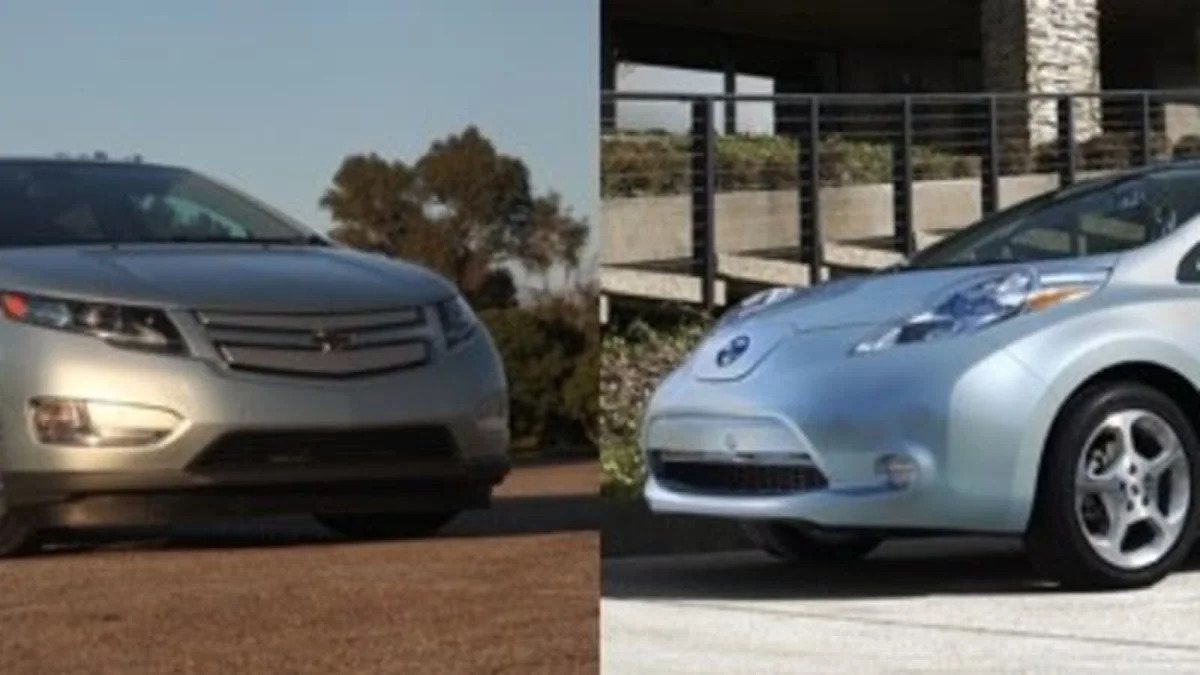Making the transition to electrified vehicles will bring with it a vast array of issues that will need to be dealt with. There are, of course, the obvious problems of charging EVs in urban areas and disposal and recycling of batteries. Then there is the problem of taxation. Vehicles need paved roads to travel on. Paving costs a lot of money. While there are some toll roads in the U.S. that drivers pay to traverse, most infrastructure is financed through fuel taxes. The presumption is that the amount of fuel you use is roughly in proportion to your use of the roadways and this system has sort of worked for many decades. Of course, the system isn't perfect, since some states, like Michigan, have gotten back far less than they have contributed in federal fuel taxes.
Electric vehicles are coming soon in a serious way, and will still be using the nation's roads. However, since drivers won't be filling them with liquid fuel, they won't be paying those road taxes. There have been numerous proposals about how to replace this revenue, including various pay-per-mile schemes. The state of Washington currently has a bill under debate that would impose a $100-per-year registration fee on electric vehicles to cover the cost of roads. However, this particular proposal, like most flat taxes, is far to simplistic and doesn't account for the nuances inherent in the real world.
For example, the new fee only applies to pure electric vehicles like the Nissan Leaf and Mitsubishi iMiEV. Vehicles that still have an engine onboard – like the Chevrolet Volt and Toyota Prius PHEV – would be exempt since they would still presumably use some fuel. The problem is most of these vehicles will use far less fuel than a conventional ICE vehicle and get off disproportionately cheap. Any solution to the issue of paying for roads will have to be a bit more complex this. One possibility is to use smart metering systems to apply a per-kWh tax when electricity is used for vehicle charging. This, of course, has its own issues since those that use solar or wind to get off the grid would also not pay for road use. Perhaps a GPS based per-mile rate (factoring in weight somehow, since that also affects road wear) is the only real solution. Have your say in the comments.
[Source: All Car Electric]
Electric vehicles are coming soon in a serious way, and will still be using the nation's roads. However, since drivers won't be filling them with liquid fuel, they won't be paying those road taxes. There have been numerous proposals about how to replace this revenue, including various pay-per-mile schemes. The state of Washington currently has a bill under debate that would impose a $100-per-year registration fee on electric vehicles to cover the cost of roads. However, this particular proposal, like most flat taxes, is far to simplistic and doesn't account for the nuances inherent in the real world.
For example, the new fee only applies to pure electric vehicles like the Nissan Leaf and Mitsubishi iMiEV. Vehicles that still have an engine onboard – like the Chevrolet Volt and Toyota Prius PHEV – would be exempt since they would still presumably use some fuel. The problem is most of these vehicles will use far less fuel than a conventional ICE vehicle and get off disproportionately cheap. Any solution to the issue of paying for roads will have to be a bit more complex this. One possibility is to use smart metering systems to apply a per-kWh tax when electricity is used for vehicle charging. This, of course, has its own issues since those that use solar or wind to get off the grid would also not pay for road use. Perhaps a GPS based per-mile rate (factoring in weight somehow, since that also affects road wear) is the only real solution. Have your say in the comments.
[Source: All Car Electric]


Sign in to post
Please sign in to leave a comment.
Continue